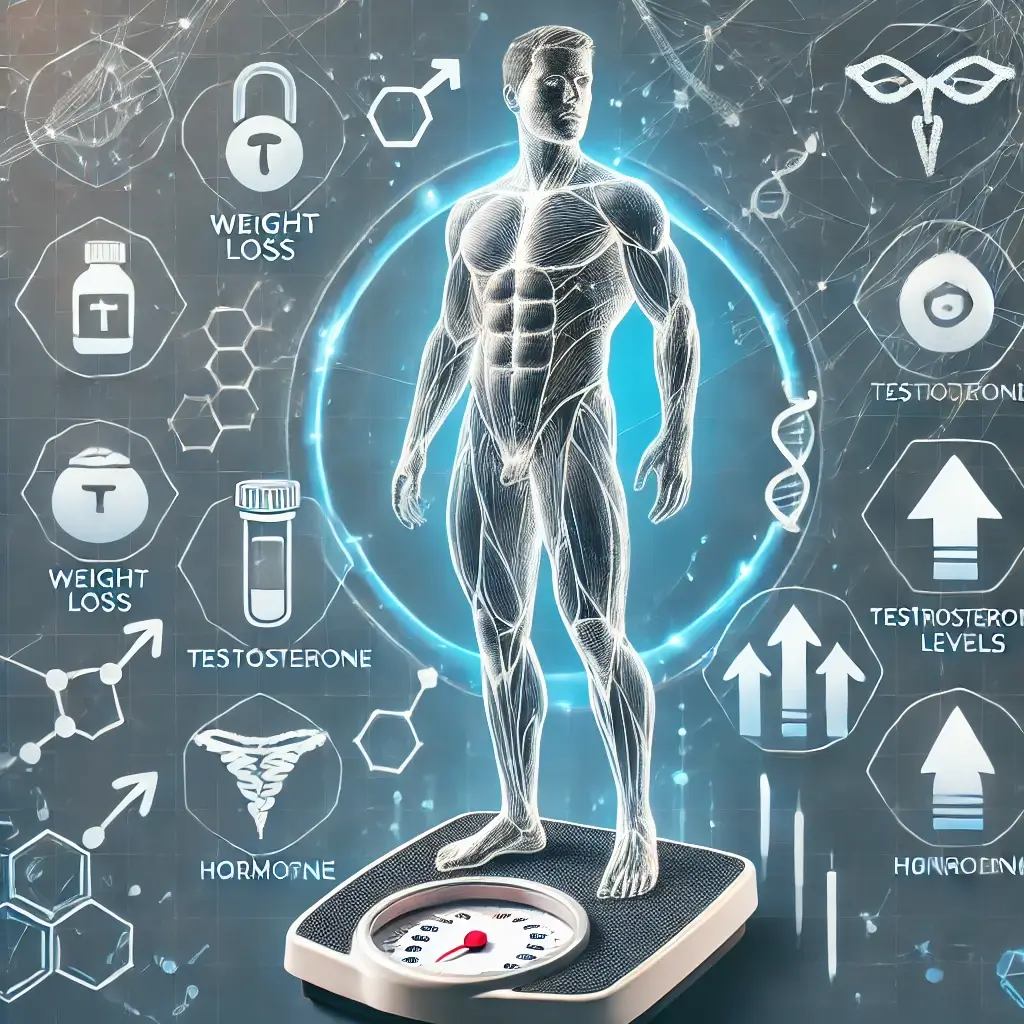Unlock Your Testosterone Potential: The Surprising Impact of Weight Loss on Men’s Health
The Connection Between Weight and Testosterone
Weight is indeed a factor in maintaining optimum levels of testosterone. Obesity is a risk factor for low testosterone levels. Excess fatty tissue can lead to decreased testosterone production through increased estrogen production and higher levels of sex hormone-binding globulin (SHBG).
Weight Loss and Testosterone Levels
Studies have shown that even moderate weight loss can significantly impact testosterone levels in obese men. Reducing seven to ten percent of total body weight can increase testosterone levels in the bloodstream.
The Complex Relationship Between Fat and Hormones
Excess body fat, particularly in the abdominal area, is related to higher estrogen production due to increased aromatase activity. Obesity can disrupt the hypothalamic-pituitary-gonadal axis, a key hormonal system controlling testosterone production.
Benefits of Weight Loss on Testosterone
Achieving reasonable weight loss can reverse unfavorable mechanisms and return testosterone levels to a more ideal range. This can enhance sexual performance, muscle development, mood, cognitive function, and reduce the risk of cardiometabolic diseases.
Weight Loss Effects on Various Body Types
The positive effects of weight loss on testosterone are not restricted to extremely obese individuals. Even men with slightly elevated BMI can experience significant changes in testosterone levels through healthier lifestyle choices.
Importance of Healthy Lifestyle for Testosterone
Incorporating a healthy diet and regular exercise can be beneficial for men who want to maximize their testosterone levels and improve overall health. Consult with a physician if concerned about low testosterone levels.
Additional Considerations for Testosterone Levels
Factors beyond obesity, such as age or genetics, can affect testosterone levels. Weight loss through nutritious diet and regular physical activity is recommended for hormonal well-being.
Resources for Further Information
For more information, visit the Mayo Clinic’s discussion on low testosterone and the National Institutes of Health’s website on weight control and men’s health. Always consult a medical professional for personalized advice on hormonal issues.
